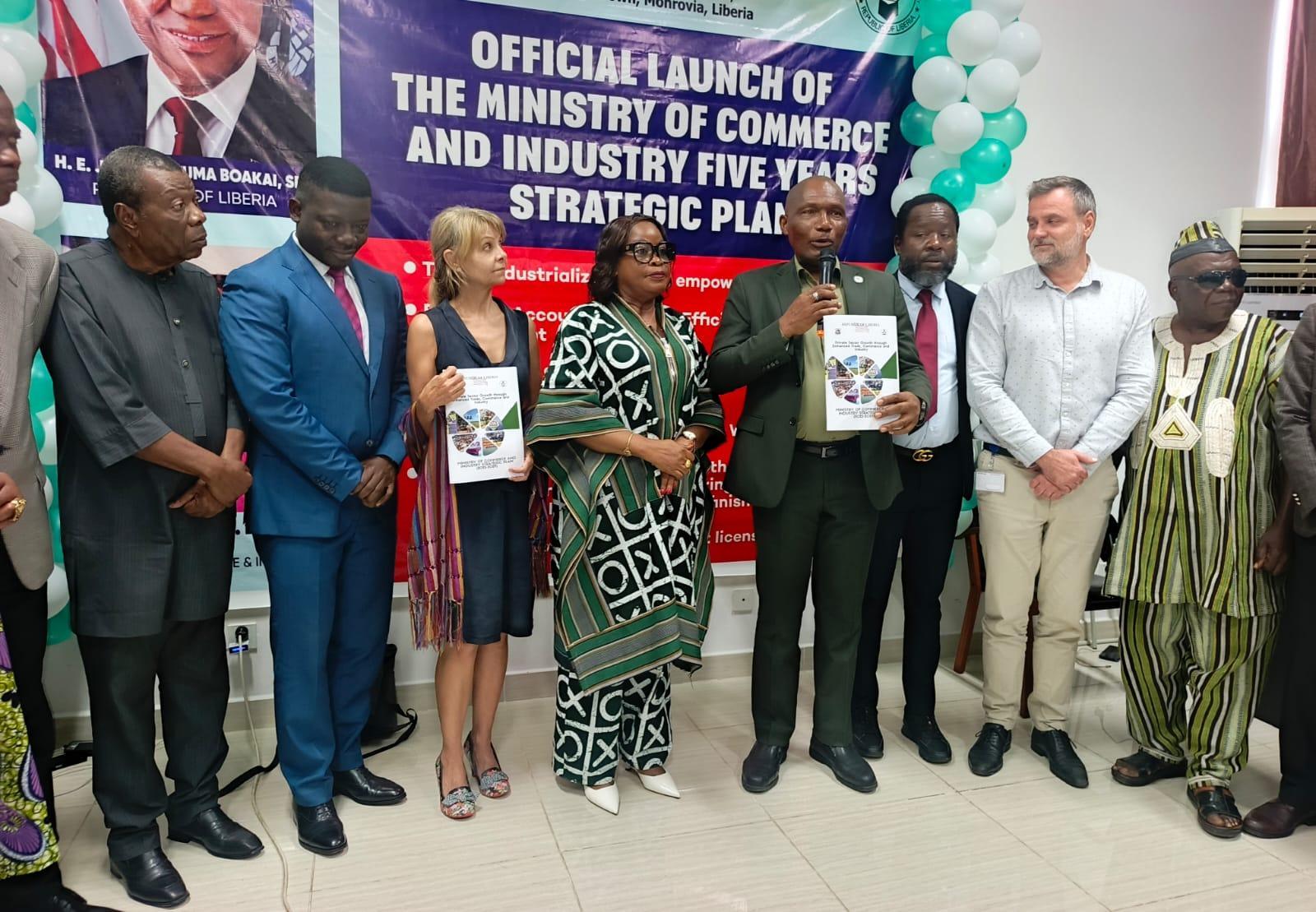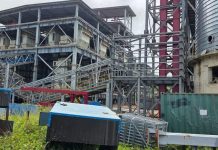Africa-Press – Liberia. The Commerce Ministry says its recently launched 5-year plan would drive innovation, competitiveness, and productivity in the country.
Liberia’s Commerce Minister Magdalene E. Dagoseh has reaffirmed the government’s unwavering commitment to transforming Liberia’s economy by driving productivity, innovation, and competitiveness across every sector over the next five years (2025-2029).
Addressing the launch of the Ministry’s Five-Year Strategy Plan, 2025-2029, which targets inclusive innovation, competitiveness, and private-sector climate resilience, Mrs. Dagoseh assures a commitment to strengthening the roles of commerce, trade, and industry as engines of sustainable and inclusive growth.
“Growth and development of MSMEs for sustainable job creation, improving service delivery via digitalization, decentralization, partnership, and advocacy. “Availability and accessibility of trade, industry, and SME data for decision-making, while transforming MoCI into a high-performing institution,” are highlights of the ministry’s five-year plan.
According to her, the MoCI Five-Year Strategy Plan is anchored around the government’s Economic Transformation Pillar of the ARREST Agenda, which emphasizes Agriculture, Roads, Rule of Law, Education, Sanitation, and Tourism as key pillars for national renewal.
She explained that the ministry is a cornerstone of national transformation and a driver of policy, innovation, and enterprise, so the strategic plan serves as a guiding document, and the visionary roadmap defines a path toward economic resilience and industrial empowerment.
Our aim is clear: to create a business environment that empowers entrepreneurs, attracts investment, promotes competition, and generates decent and sustainable jobs for our people. Minister Dagoseh stressed.
She reiterated that the strategic priorities will focus on promoting industrialization and value addition to reduce import dependency and stimulate local production, while enhancing trade facilitation and export promotion to expand market access for Liberian goods and services.
The commerce minister outlined strengthening the business regulatory environment to encourage entrepreneurship and private-sector participation, ensuring that policies and programs remain climate-sensitive, inclusive, and innovation-driven.
This plan envisions a modern, competitive, sustainable economy, one that places the private sector at the center of Liberia’s development story, she said.
She emphasized deepening collaboration with development partners, the private sector, and other government institutions to accelerate progress.
In his keynote address, James Strother, president of the Liberia Business Association (LIBA), commended the Ministry for its consistent drive to advance Liberia’s economy.
Strother pledged to work with the Ministry of Commerce to translate its strategy plan into a positive impact.
He emphasized economic transformation as key to consistent dialogue that creates a more competitive environment, as well as access to finance that truly empowers Liberian entrepreneurs.
“The ministry must roll out the plans, thereby creating a more enabling business environment that supports innovation, local production, and industrial competitiveness,” Strother stressed.
He described the strategy plan as “pivotal for connecting government to private sectors, the business community, and locals shaping the future of Liberia’s economy,” while the private sector must not be seen as a beneficiary but as a partner in driving economic growth.
In an earlier overview about the Ministry of Commerce and Industry Five-Year Strategy Plan, Wilmot A. Reeves, Deputy Minister for Commerce and Trade, outlines the results of the plan, such as a diversified and expanding industrial base, enhanced trade facilitation and export competitiveness, improved innovation and technology diffusion, and a conducive business environment with efficient public service delivery.
He mentioned core strategic values, including trade development and promotion, industry development and promotion, private-sector and entrepreneurship development, MSME development, and human and institutional capacity development.
For More News And Analysis About Liberia Follow Africa-Press






